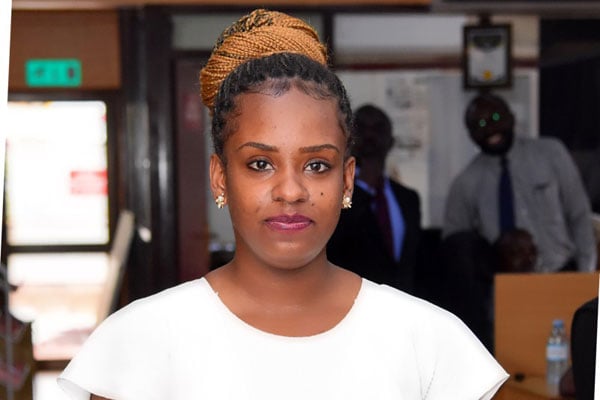Justice Mugambe named on global crimes tribunal

The plaintiff, Justice Lydia Mugambe
What you need to know:
- The Mechanism was established by the UN Security Council in 2010 to perform some functions of the International Criminal Tribunal for the former Yugoslavia (ICTY).
Lydia Mugambe Ssali has been appointed as judge of the International Residual Mechanism of International Criminal Tribunals.
The International Residual Mechanism for Criminal Tribunals (IRMCT), sometimes referred to as the Mechanism, was established by the United Nations Security Council in 2010 to perform some functions of the International Criminal Tribunal for the former Yugoslavia (ICTY).
In a tweet, Mr Adonia Ayebare, Uganda’s permanent representative at the UN, congratulated Justice Mugambe upon her appointment.
“Congratulations Justice Lydia Mugambe for your appointment as a judge of the Residual Mechanism of the International Criminal Tribunals. Thank you @antonioguterres for accepting her nomination, and my team@UgandaMissionsNY,” Mr Ayebare tweeted yesterday.
When contacted last evening, Justice Mugambe, who is mourning her father who passed on about a week ago, said her appointment is great news that has come at a difficult time.
“I was called about it (appointment). The news has come during difficult circumstances for me but its great news and a great opportunity for me to return to the UN system and serve my country,” she said in a telephone interview.
Justice Mugambe, who is attached to the Family Division, is currently on a sabbatical leave as pursues her PhD in the United Kingdom.
The late Justice Elizabeth Ibanda-Nahamya, was the last Ugandan judge to serve at IRMCT which has bases in Arusha, Tanzania and The Hague, Netherlands.
The Mechanism has a roster of 25 independent judges who serve both its branches as provided for in the statute.
The judges are elected by the United Nations General Assembly for a term of four years and are eligible for reappointment by the United Nations Secretary General after consultations with the presidents of the Security Council and of the General Assembly.
The Statute of the Mechanism sets out that the judges shall be persons of high moral character, impartiality and integrity who possess the qualifications required in their respective countries for appointment to the highest judicial offices.
Particular account is taken of candidates’ experience.
Likewise, not more than two of the judges on the roster may be nationals of the same State.
Justice Mugambe once served as Legal Counsel at the United Nations International Criminal Tribunal for Rwanda in Arusha, Tanzania.
about lydia mugambe
Justice Lydia Mugambe-Ssali is a judge of the High Court in Uganda. Her areas of specialisation include; international law, criminal law, international human rights law, intellectual property law, insolvency law and practice, trade and investment law, corporate finance and commercial law as well as executive leadership. She also is an expert arbitrator and mediator in oil and gas, artificial intelligence and new edge law, commercial transactions and land.
She is currently a PhD researcher at the University of Oxford in the UK and holds the LLM in International and Intellectual Property Rights Law from Lund University in Sweden; LLM in Human Rights and Democratisation in Africa from the University of Pretoria in South Africa and the Bachelor of Laws from Makerere University.




